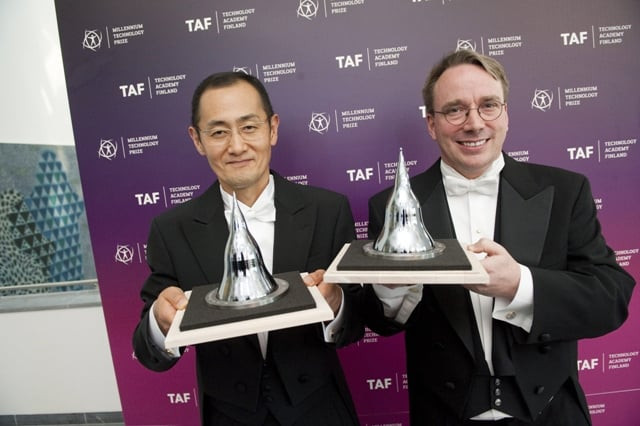Linux creator, stem cell scientist win 1.2 mn euro technology prize
Linus created Linux open source operating system, Yamanaka won for method to develop induced pluripotent stem cells.

"Today, millions use computers, smartphones and digital video recorders that run on Linux. Linus Torvalds's achievements have had a great impact on shared software development, networking and the openness of the web," the Millennium Technology Prize organisers said in a statement.
Yamanaka meanwhile won for "his discovery of a new method to develop induced pluripotent stem cells for medical research," the prize jury said, adding that it was the first time that the award has been split between two scientists.
"Using (Yamanaka's) method to create stem cells, scientists all over the world are making great strides in research in medical drug testing and biotechnology," it said.
"This should one day lead to the successful growth of implant tissues for clinical surgery and combating intractable diseases such as cancer, diabetes and Alzheimer's."
Yamanaka himself vowed in the statement to "continue to work hard to achieve our goals of developing new drugs and medical treatments to intractable diseases by using iPS cell technology."
Finnish President Sauli Niinistoe presented the prize to the two laureates at a ceremony at the Finnish National Opera in Helsinki Wednesday.
The two men shared the prize equally, each receiving 600,000 euros ($751,500).
The Millennium Technology Prize, created in 2002 and funded by the Finnish state and the Technology Academy of Finland, is awarded every two years as a "tribute to developers of life-enhancing technological innovations".
It was first awarded in 2004 to Tim Berners-Lee, inventor of the World Wide Web, and last time, in 2010, it went to Swiss professor Michael Graetzel for developing a low-cost solar power cell using cheap materials such as dye squeezed from berries.



















COMMENTS
Comments are moderated and generally will be posted if they are on-topic and not abusive.
For more information, please see our Comments FAQ